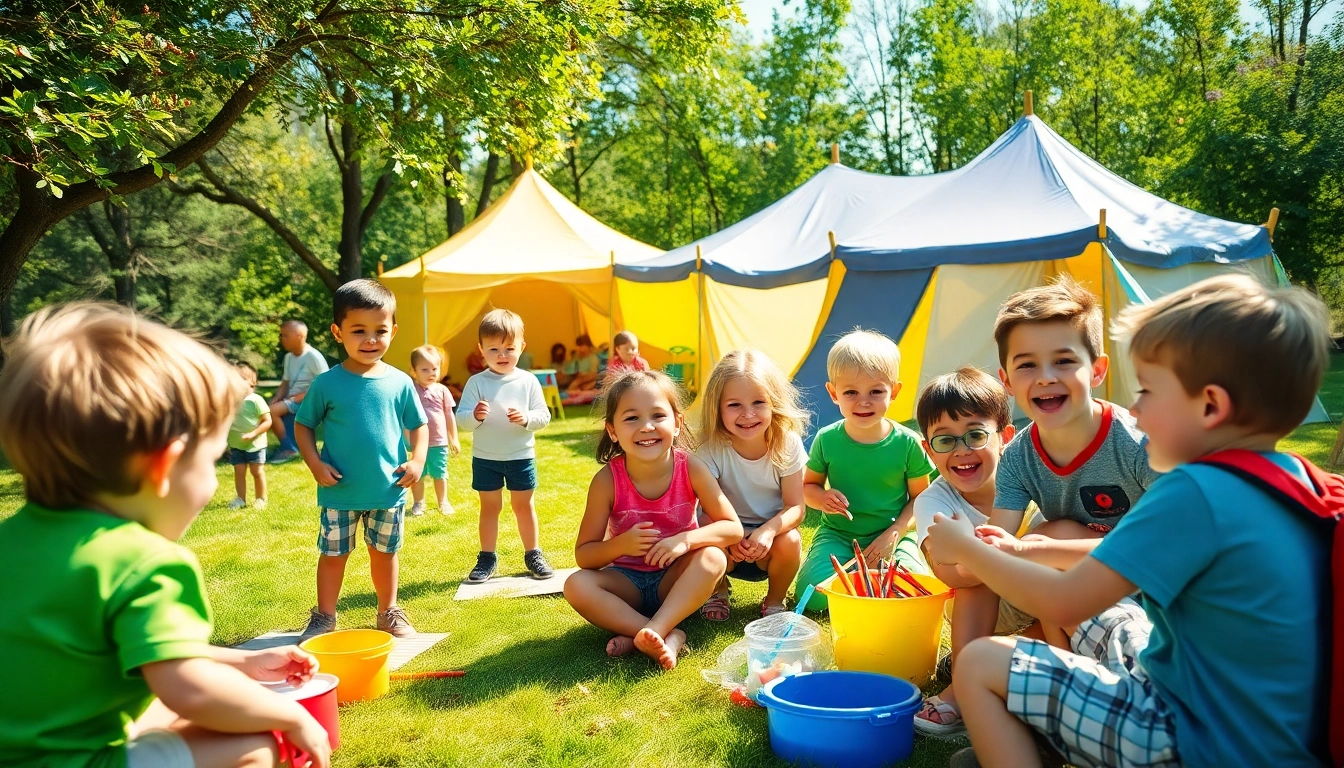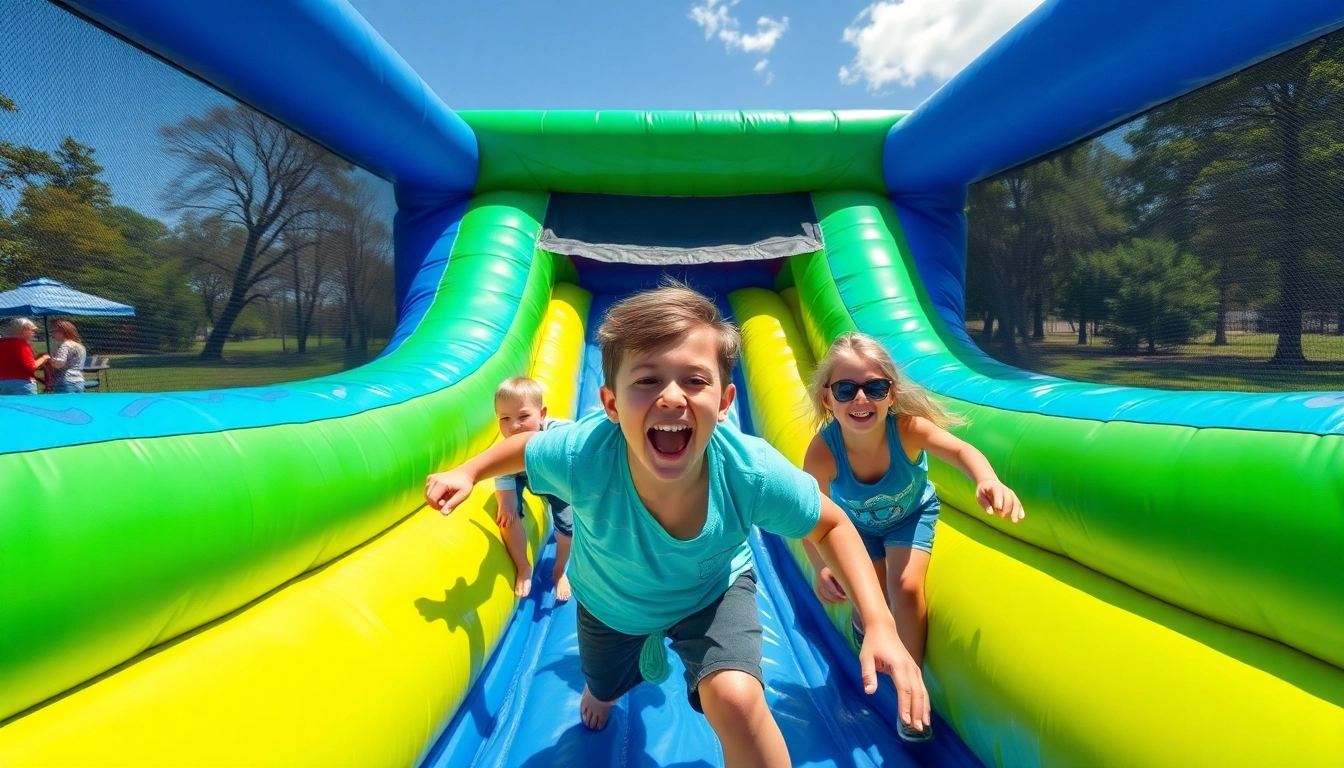The Essence of Holiday Camps: What You Need to Know
Holiday camps offer an excellent opportunity for children to engage in supervised activities, make new friends, and learn new skills in a fun environment. These camps can range from traditional outdoor adventures to specialized programs focusing on education, arts, or sports. When considering a holiday camp for your child, understanding the intricacies of what they entail can help guide your decision.
Understanding the Concept of Holiday Camps
At their core, holiday camps are immersive programs designed to provide children with a structured environment during school breaks. Typically, they engage participants through a combination of recreational and educational activities, which can aid in personal development and social skills.
These camps can take various forms, from residential camps where kids stay overnight to day camps that allow children to return home each evening. The activities often reflect seasonal themes and cater to the children’s interests, ranging from sports and arts to science and technology. One of the appealing aspects of holiday camps is that they serve as a safe space for children to explore and discover their talents.
Benefits of Attending Holiday Camps for Children
Enrolling children in holiday camps provides several benefits:
- Social Skills Development: Camps offer a platform for children to meet peers, make new friends, and learn teamwork through group activities.
- Skill Enhancement: Children have the chance to explore new interests or develop existing skills, whether that’s in sports, arts, or technology.
- Independence: Attending camps can encourage kids to become more independent and self-reliant, as they start to navigate their experiences without immediate parental supervision.
- Physical Activity: Many camps emphasize outdoor activities that promote physical health, which is crucial in the age of technology.
- Mental Health Benefits: Engaging in fun and stimulating activities helps reduce anxiety and boost mood, contributing to overall mental wellness.
Types of Holiday Camps Available
There is a broad spectrum of holiday camps tailored to different interests and age groups:
- Day Camps: These camps run during the day, where children return home every evening. They usually provide a wide variety of activities from sports to arts and crafts.
- Residential Camps: Children stay overnight at these camps, often providing a more immersive experience with various programs designed to keep them engaged.
- Specialized Camps: Focused on specific skills, these camps may include music camps, sports camps, or STEM camps, enabling children to dive deep into their interests.
- Adventure Camps: These are geared towards outdoor activities like hiking, rock climbing, and team challenges, promoting physical fitness and bonding.
- Arts and Crafts Camps: These camps allow children to explore their creative sides through painting, sculpting, or performing arts.
Choosing the Right Holiday Camp for Your Child
Factors to Consider When Selecting a Holiday Camp
When selecting a holiday camp, several considerations can help ensure a good match for your child:
- Location: Assess the proximity of the camp to your home or workplace, as this can affect logistics and your child’s comfort level.
- Duration and Schedule: Check if the camp aligns with your child’s school break schedule and how long the program lasts.
- Cost: Evaluate the fee structure and what it includes. Some camps may have hidden costs for activities or supplies.
- Reputation: Research the camp’s reputation, looking for reviews from other parents or families who have attended in the past.
Age Appropriateness and Activity Suitability
It’s essential to ensure that the activities are suitable for your child’s age group. Different age groups require different programming to keep them engaged and learning. Most camps cater to specific age ranges and often have groups accordingly. Be sure to review the activities to ensure they are both age-appropriate and compelling for your child.
Getting Feedback and Reviews from Other Parents
Before making a final decision, seek feedback from parents who have previously enrolled their children in the camps you are considering. Online reviews, personal testimonials, and local community discussions are excellent resources. They often highlight the camp’s strengths and weaknesses, helping you make a more informed choice.
Popular Activities at Holiday Camps
Arts and Crafts to Spark Creativity
Creativity is a key component of many holiday camps, offering children the opportunity to express themselves through various art forms. From painting and pottery to DIY crafts, children can explore new mediums and learn new techniques. Such activities not only cultivate creativity but also enhance fine motor skills and patience.
Outdoor Adventures and Sports
Outdoor activities are vital in holiday camps as they promote physical fitness and foster teamwork. Common offerings include:
- Team Sports: Such as soccer, basketball, or baseball, are often included to teach cooperation and strategic thinking.
- Individual Sports: Activities like swimming, archery, or tennis allow children to excel at their own pace.
- Nature Exploration: Many camps encourage activities like hiking, rock climbing, or nature trails, providing a chance for adventure and outdoor education.
STEM Programs and Educational Workshops
As education becomes increasingly intertwined with daily life, holiday camps also offer STEM-focused activities, such as coding, robotics, and environmental sciences. These programs often stimulate young minds, encouraging critical thinking and problem-solving skills in a fun, dynamic setting. For many children, these experiences may lead to a lifelong passion for science or technology.
Safety and Well-being at Holiday Camps
Health Protocols and Safety Measures
Safety is a top priority at holiday camps. Families should inquire about the health protocols and safety measures in place. These may include:
- Health Screenings: Mandatory check-ups may be conducted to ensure children are well and fit to participate.
- Staff Training: Camp staff should be trained in emergency protocols, including first aid and CPR.
- Safety Gear: Camps focusing on adventure sports should provide safety equipment, and ensure its use.
Trained Staff and Supervision
Qualified staff are essential for a successful camp experience. Ensure that instructors are trained and experienced in working with children. A favorable camper-to-staff ratio is critical in providing adequate attention and supervision, ensuring that safety is upheld and that children feel supported during their camp experience.
Emotional and Mental Health Considerations
Camps should also take mental wellness seriously. Activities can trigger various emotional responses, and it is essential for staff to be trained in emotional support. Clear communication channels should be established for children to express their feelings or concerns. Many camps now employ counselors or trained professionals to help manage any emotional challenges faced by campers.
The Future of Holiday Camps: Trends and Innovations
Eco-Friendly Camp Practices
As environmental awareness grows, many holiday camps are adopting eco-friendly practices. Initiatives could include:
- Waste Reduction: Camps are encouraged to minimize waste through recycling and reducing single-use plastics.
- Outdoor Education: Teaching campers about sustainability and conservation as part of their curriculum.
- Local Sourcing: Camps may emphasize the use of local food sources, contributing to the local economy and reducing carbon footprints.
Technology Integration in Camp Programs
Modern camps are increasingly incorporating technology into their programs. Exciting innovations may include interactive learning experiences with coding challenges, digital scavenger hunts, or art on tablets. Balancing traditional activities with technology prepares participants for a more tech-driven world while keeping them engaged.
Inclusive Camps for Every Child
Inclusion is becoming a focal point for many holiday camps, with programs designed for children of all abilities. Camps are increasingly prioritizing accessibility, ensuring that children with disabilities can fully participate. This includes differentiated programming, modified activities, and appropriate support systems, making it possible for every child to enjoy the camp experience.


